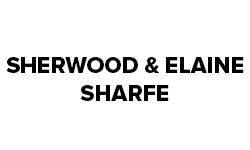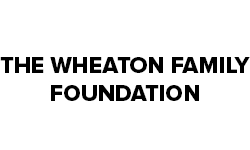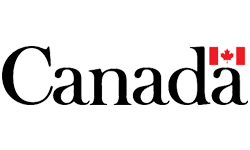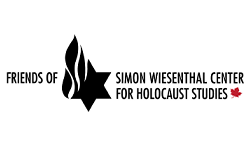Part C
Inquiry Resources
ROVER (Recommended Online Video Education Resources) is a video streaming service for Saskatchewan teachers and students in the PreK-12 education system. It is managed and maintained by the Saskatchewan Ministry of Education.
The ROVER service is video-on-demand which provides teachers and students with the convenience of immediate access to streamed, educational videos that support curriculum. ROVER videos are housed on a server located in a school or school division network so there are no bandwidth issues, resulting in better picture quality and continuous play of videos without pauses. The videos are intended for viewing on the streaming site and not for copying or downloading.
There are over 1000 videos on ROVER that can be accessed by teachers and students to enhance learning in the classroom. All the videos found on this site have been evaluated by educational professionals and recommended to support Saskatchewan’s K-12 curricula. The ROVER collection of videos continues to evolve as new videos are added annually and old videos expire.
Case Studies Resources
- Choose Your Voice (FAST – Fighting Antisemitism Together)
- Facing History and Ourselves
- Historical Thinking Project
- The Critical Thinking Consortium – https://tc2.ca
- Vancouver Holocaust Education Centre
- Burma and the Great Awakening – CBC News in Review (R.O.V.E.R.)
- Mandela (R.O.V.E.R.)
- Nelson Mandela (R.O.V.E.R.)
- North to Freedom: The Underground Railroad to Canada (R.O.V.E.R.)
- The Dark Side of Chocolate (R.O.V.E.R.)
- White Man’s Country (R.O.V.E.R.)
- Women’s Rights: Raising the Glass Ceiling (R.O.V.E.R.)
- EconomicJustice.ca
Possible Resources for Conflict Resolution Procedures:
- PLEA (Public Legal Education Association)
- Truth and Reconciliation Commission
- Conflict Resolution Saskatchewan
- Restorative Justice Online
- Ontario Justice Education Network
- The Centre for Justice and Accountability
- Creative Spirits Website (Australia)
- SaskDebate.com
- Fundamental Freedoms: The Charter of Rights and Freedoms Video (R.O.V.E.R.)
- Egale – http://egale.ca/
- PFLAG – http://pflagcanada.ca (Services for LGBTQ Youth)
- Williams Social – variety of videos with factual information to support Social Sciences https://www.youtube.com/user/WilliamsSocial/featured
- Fighting Antisemitism Together (FAST): http://www.fightingantisemitism.ca/
- Voices into Action: http://www.voicesintoaction.ca
Cross Curricular Connections
“If students are to become lifelong learners, develop a sense of self and connection to others, and become engaged citizens and achieve the Cross-curricular Competencies and the outcomes for English language arts, students require meaningful, authentic contexts for learning. Students need many opportunities to explore questions and concerns about themselves and about the world.”
The Concentus Citizenship Education Resources provide teachers with a framework of inquires with which to further students’ explorations of their roles and responsibilities as Canadian citizens, in authentic contexts. These inquiries are directly connected to Social Sciences (History, Native Studies, Social Studies) foundational outcomes and the broad goals of learning identified above. Specific connections to English Language Arts and Treaty Education are identified and suggested as starting points for teachers.
English Language Arts B10 (Unit 1):
Contexts/Themes
Equity and Ethics (Who and What is Right?; Empowerment; Degrees of Responsibility; Rights and Responsibilities; Justice and Fairness)
Essential Questions
- What are some of the factors that create inequalities? How have inequalities shaped our world?
- What is my role and responsibility in addressing inequalities?
- What is the relationship between rights and responsibilities?
- Who decides what is right? Why should we do the right thing? How can I act on the right thing?
- How does one become an ethical person?
English Language Arts B10: (Unit 2):
Contexts/Themes
The World Around and Within Us (Perspectives; Diversity of Being; The Natural and the Constructed Worlds; Individuals and Communities; Stewardship)
Essential Questions
- What are our relationships and responsibilities to the communities and environments of which we are a part? How are we related to and responsible for natural and constructed environments? For technology?
- Why is it important to be in touch with the world?
- The world is a difficult text: how can we read it and respond to it critically?
- How can I have a positive influence upon my world?
- How must we show respect and care for the community of life?
Treaty Education
- TR10: Examine contemporary economic implications of Treaties for all the people of Saskatchewan and other Canadian jurisdictions.
- SI10: Analyze the spirit and intent of Treaties and investigate the extent to which they have been fulfilled.
- HC10: Investigate opportunities and challenges faced by First Nations and the Government of Canada in relation to governance issues.
- TPP10: Investigate issues related to resource development and Treaties.
Further Investigation Suggestions
- Develop a national transit strategy, identifying issues and proposing alternative solutions. Brings out ideology issues and students have to adhere strategy to ideology.
- Investigate the effects of climate change on hunger and food scarcity.
Exploring Inequity
Using the jigsaw research method have students explore the following policies/events:
- Residential Schools
- Métis struggle for Recognition and Rights
- Indian Act
- Reserve System
- Other?
For each event:
- Identify the issue.
- Trace history leading up to the policy/event.
- Identify the belief or worldview of the society and culture that led to the administration or application of policy. (What was the administering party trying to achieve?)
- Identify the differences in perspective and worldview of the parties/people/culture affected by the administration of this form of justice.
- What was the impact on the receiving party?
- How did these processes compare to current perceptions of justice? (SS?)/How does this compare to historical applications of justice? (His?)
- What has changed about society to account for the shift in our response to this issue?
Glossary
© 2024 Concentus Citizenship Education Foundation Inc. All Rights Reserved.










